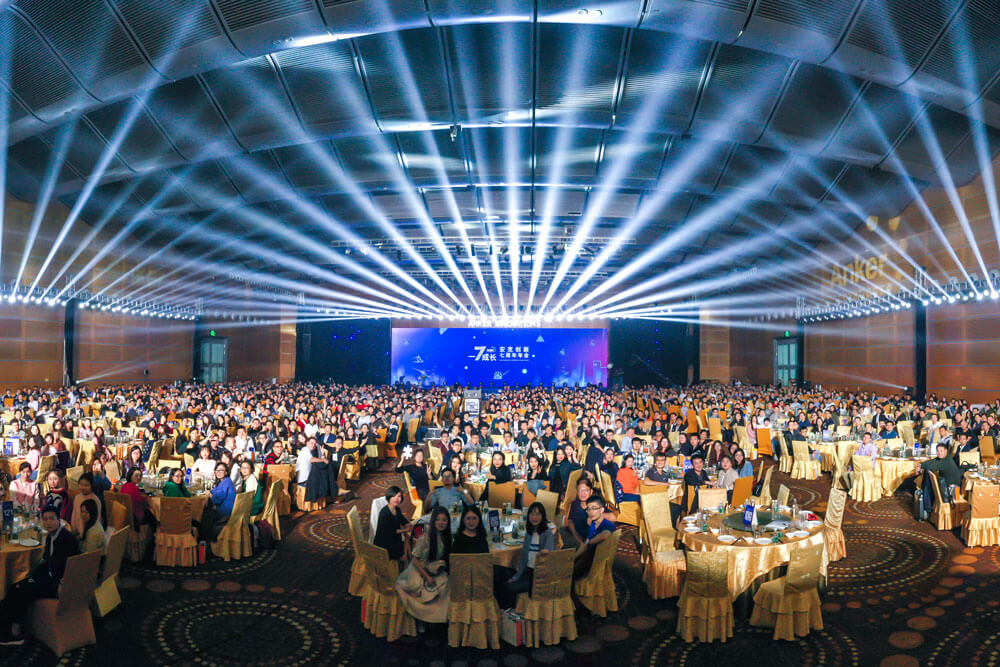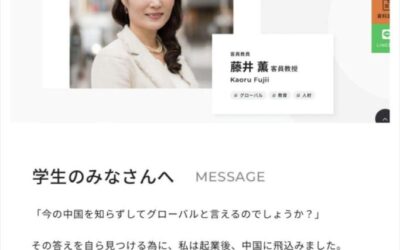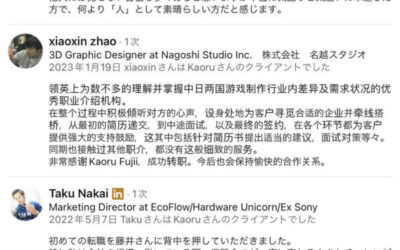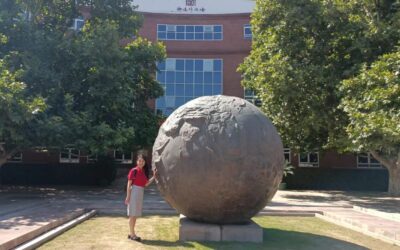Article of Forbes Japan: https://forbesjapan.com/articles/detail/30112
Interview with “Anker Innovations” in Shenzhen, Seattle and Tokyo
"Were there such diverse companies that did not make people feel their nationality?"
That was my first impression when I met Anker. This time, I was able to interview three offices in Shenzhen in China, Seattle in the U.S., and Japanese office in Tokyo, and I really felt their "Innovation in the corporate culture". We would like to share the secret story of its birth and tips for utilizing diversity that will be useful for us.
"DNA of both Silicon Valley and Shenzhen"
Anker, the number one mobile charger player in the EC market, including Amazon, has a lot of loyal users. Anker was founded in China in 2011.
The company is currently headquartered in Shenzhen and Changsha, has 7 offices in the U.S., Japan and Dubai, and has more than 1500 employees, and has successfully expanded globally. As proof of this, since the company's inception, the U.S. has been No. 1 in terms of sales, Japan No. 2, and Europe No. 3, with total sales topping $800 million (Approximately \86 billion) in fiscal 2018.
Based on its vision of "Empowering Smarter Lives" the company has also recently developed IOT products, such as the Nebula series of mobile projectors, that work with smartphones to enrich people's lives, and currently has 5 brands.
I could interview the founders, Mr. Steven Yang, and CEO Steven directly.
"What a calm person!" is Steven's first impression. He is leading a truly global company in his mid-30s. Rather than being a leader, he is surrounded by a group of people rich in nature and diversity, a circle that has spread around the world, and a corporate culture that encourages members to innovate on their own is being established.
Underlying that diversity is Steven's background in China and his experience as a top engineer in Google's search engine at the Silicon Valley headquarters.
The software guy found a new chance in the global hardware market.
It is a business model in which reliable quality products in mobile batteries are provided directly to end users at reasonable prices to enhance support. This simple loop didn't exist today.
To make this world a reality, He first worked in Silicon Valley to develop ideas, and night after night he began communicating with China. First, he chose Shenzhen as his base because it was suitable for the development and production of excellent products.
The Shenzhen headquarters is also internationally renowned. Many of them are from Europe, South America and other Asian countries. For them to be able to learn Chinese, we also have a Chinese language class in the company.
At the very beginning of such a colorful environment, there was a Japanese who jumped in as a foreigner. Mr. Ido is the representative of the current corporation in Japan.
"I want you trust me for all of Japan, a challenger who sold me from Zero."
I was able to meet the unorthodox challenger Mr. Ido in person.
After graduating from the University of Tokyo, he does worked at The U.S. financial institution and met Anker in 2012.
He contacted foreign companies that had nothing to do with him, saying, "This product is a hit in Japan, so I want you to trust me to do the business in Japan." and pitched his business plan.
Wow, what was the driving force?
His first motivation was to become independent. He was thinking about bringing several foreign brands to the Japanese market, and he actually thought of Anker as one of them, but when he met CEO Steven and President Mr. Dongping Zhao, he felt empathized with their vision of 'Innovate the business model to become a manufacturer facing the market' and was convinced that was it. he already felt the high intention from the products at that time.
So he decided to devote all my energies to this product, and he started to take on the challenge of developing the Japanese market by establishing a Japanese company from scratch. "
In its first year of operation, the company generated sales of 1 billion yen and successfully achieved its goal of becoming No. 1 in market share in Amazon. And it's growing steadily, from online to offline.
"Thorough localization and commitment"
What is the secret to its success?
It is their corporate culture of thorough localization, flat organization, transparency, and fastest global speed.
In particular, the extensive localization is amazing. Product pricing, branding, sales strategy, hiring strategy, all led by the Japanese team.
I have personally worked with several foreign companies, but I have never heard of any other company that leaves pricing to the local.
Mr. Ido told us that it is important to continue to circulate the constructive loop of trust by making the most of the discretionary power and getting the maximum support from the head office.
And what they care about is that they have a customer support team at their company.
Evolving as a manufacturer facing the market means that we listen to customers' voices in real time and pursue improvements on a daily basis. "Add value to the product" he said.
To this end, they have established a customer support team, which is the eyes and ears of customers, at each location, and they are pursuing a 18 month guarantee for all products as well as detailed support on a daily basis.
It is especially impressive that a corporate culture that cannot be imitated is shared unshakably throughout the world.
"From Seattle to the World, Becoming a Global Brand Originating in Asia"
I realized that when I was in Seattle with Mr. Eric Villines, Head of Global Communication, an American, in an interview.
Eric is an experienced communications expert who has majored in both technology and marketing before working as a writer, media, and PR agency in San Francisco and Seattle.
He met Anker in 2017 for four hours during his first TV interview with Steven.
Their vision and mission were very clear and sympathetic, and we joined them to further evolve Anker from Asia as a "Global Brand".
The Seattle office has been open for 4 years and now has more than 80 people on board, with more than 10 of his direct reports heading both the US and China teams, who are truly borderless.
While many U.S. media outlets are still based in New York, he insists there are few downsides to location these days.
Indeed, a Shenzhen-based PR rep did just that when they released a new product in New York that incorporated Anker's evolved technology "Power IQ 3.0". Their efforts and personality have given them a fair reputation in the media.
"Bringing together the differences between Europe, America and Asia is the reason why globalization is unshakable"
How difficult is it to combine the U.S. and China teams? I asked Eric, and he answered like this.
"I think there's a difference in the basic culture. It will be different not only from the U.S. and China, but also from Japan.
In China, for example, there is a tendency to seek a family relationship, both public and private, but the United States tries to maintain a sense of distance to respect each other's privacy.
Both are good, so he enjoy making a team by mixing them, which is interesting.
My family also loves China and other Asian countries. I have lived in Shenzhen with my children for more than six months.
It's one of the attractions of working at Anker, and it's an exciting challenge for us to build a common culture as a company while respecting each other's differences. "
Indeed, I felt that corporate culture was shared globally and upgraded as diversity increased.
"Small and big innovation"
Here's where they come from: the USB quick charger.
Honestly, I didn't know the battery charger was full of innovative technology before this interview. Now I understand the significance of their "Small and big innovation" and the difficulty of their challenge.
Mr. Lambert Li, the product manager of the latest product "Anker Power Port Atom PD1", is a representative example of this.
The first step in this development is to allow all mobile devices to be fully charged with a single charger.
From now on, you won't need an AC adapter for every mobile device, and all devices, including laptops, will be able to charge with a single charger — the fastest charging and most comfortable way to live.
For this purpose, "Technological innovation to carry more power in smaller forms" is indispensable. This was very difficult, but they were the first in the world to do it.
USB Power Delivery, the latest power standard, has a powerful power supply of up to 100 watts that can fully charge small fans and laptops. However, when supplying such a large amount of power, heat generation becomes a problem.
Anker is the first company in the world to introduce a battery charger that uses gallium nitride, a power semiconductor material, to increase charging efficiency and reduce heat generation.
He, who has devoted himself to the development for about two years, told us happily.
"I've been a project manager and product development manager in the development department since I graduated. I had several job offers from other companies, but I'm really glad I joined Anker.
If we raise our hand in a free environment, even new graduates will have such an opportunity, and we will continue to develop products with an impact that will be recognized in the world market.
Because products are easy to imitate, incessant technological innovation is essential, and the innovation is of great social significance in that it embraces a unique corporate culture that can be said to be the most difficult to imitate, makes the most of human talents, and enhances product and corporate value on a global scale.
"Simplicity that makes difference the strongest strength"
I have been involved with many companies called global companies, but I find it very rare to find such a diverse company that is neither Western, Chinese, nor Japanese.
Not only big companies, but also startups. Although the number of companies with excellent growth in technology and individual talents has increased, I have recently come to feel that it is difficult to develop a corporate culture that makes use of people from different backgrounds.
Anker combines Shenzhen's fastest product development, the ability to move the business forward, and Silicon Valley-trained long-term global strategy.
So is it impossible to build this great culture without the founders having the same experience?
No, I don't think so now that I've covered three sites.
It's true that the hybrid DNA of the founder has a lot of influence, but if he is a manager who wants to bring his fellow countrymen together, this corporate culture will never work.
"Free culture is important, but it is not enough. I think it's simply my role to align the vectors of everyone's passion." Steven said simply.
Even if people of the same nationality and place of origin are different.
We recognize and respect these differences, clearly share our vision and goals, and trust and trust local people and individuals. After that, I think we can build a corporate culture where diversity is our greatest strength and we can innovate together.
Thank you!



